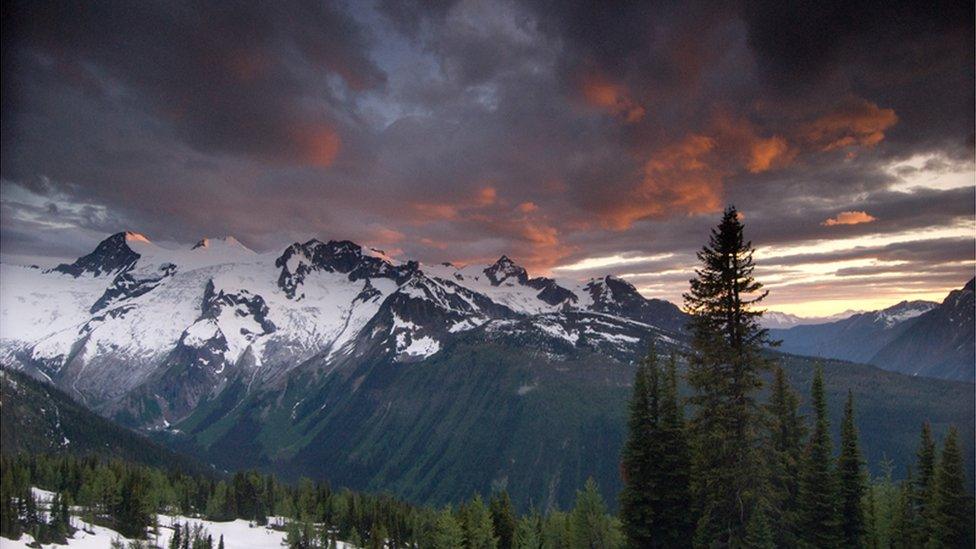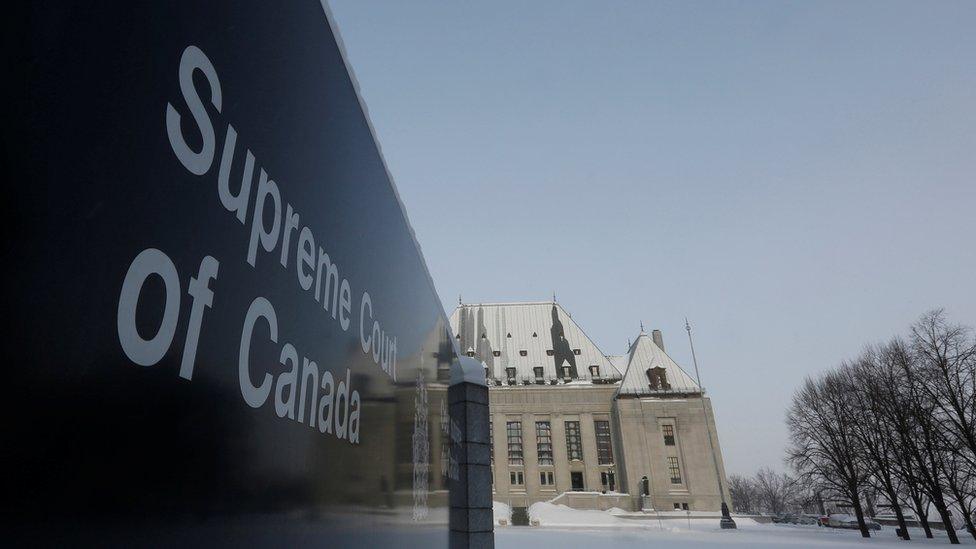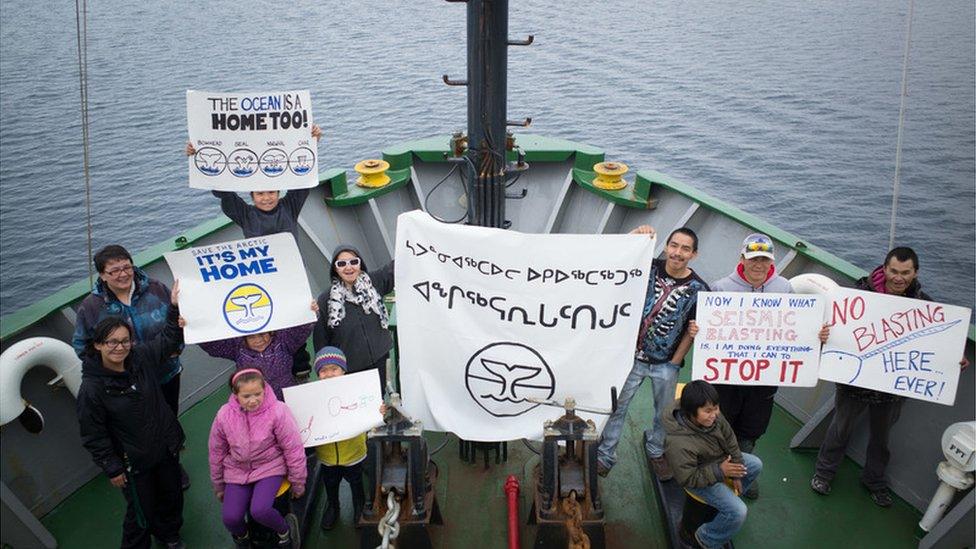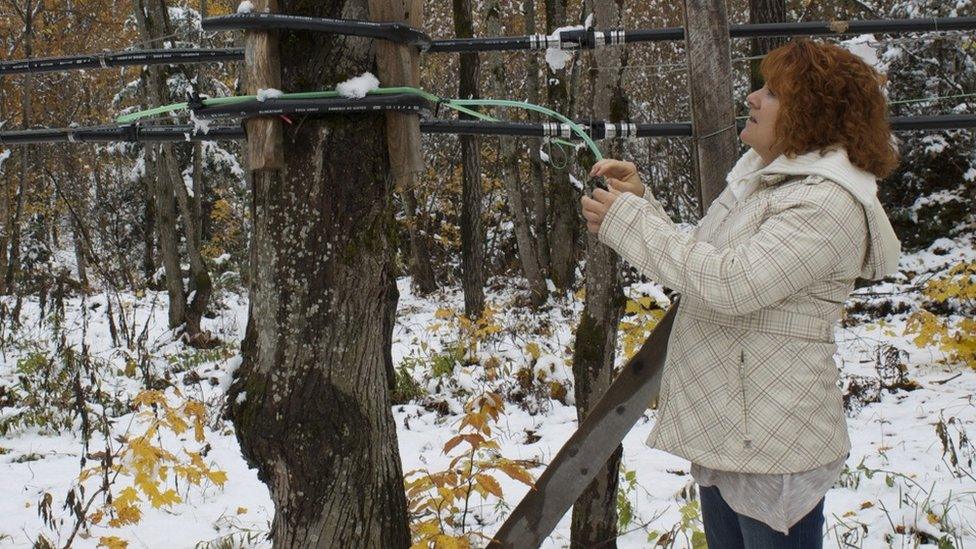Canada's top court rules on British Columbia Grizzly Bear Spirit case
- Published

The Ktunaxa Nation Council are battling a proposed ski resort in British Columbia's Jumbo Valley
Canada's Supreme Court has paved the way for a controversial ski resort project despite indigenous opposition.
On religious grounds, the Ktunaxa Nation opposes the development in a region of British Columbia (BC) they call Qat'muk.
The region is of spiritual significance to the First Nation because they believe it is home to Grizzly Bear Spirit.
They argue the proposed resort would drive the spirit from the territory.
The Ktunaxa Nation, whose traditional territory straddles the Canada-US border, say the development could deprive them of spiritual guidance and assistance from the spirit.
The ski resort would be built in the upper Jumbo Valley, about 55km (35 miles) west of the town of Invermere, BC.
Released on Thursday, the ruling states that while the charter protects the freedom to worship, it does not protect the "objects of belief" - in this case Grizzly Bear Spirit.
In an argument the court called "novel", lawyers for the Ktunaxa Nation claimed Canada's rights charter extends to the protection of the presence of the spiritual being.

The Supreme Court of Canada ruled in to cases related to the consultation of indigenous peoples
The court also noted that "many changes had been made to the project to accommodate the Ktunaxa's spiritual claims".
In March 2012, the BC government approved the disputed Jumbo Glacier ski resort development planned in the remote valley in the province's mountainous southeast.
The contentious project would be built on the site of an abandoned saw mill in a remote region long used for "heli-skiing" - flying skiers and snowboarders to the top of runs by helicopter - and revered for its deep snow and wilderness.
The company behind the project, Glacier Resorts, negotiated for over two decades with the BC government and others, including the two First Nations who inhabit the valley.
Opposition to the project attracted international attention after a 2015 Netflix documentary, Jumbo Wild,, external which was sponsored by the California-based clothing company Patagonia.
Significant changes, including added protections for the local grizzly bear population, were made to the original proposal based on concerns raised during the consultation.
The Shuswap First Nation were satisfied with the changes made during the consultation process and currently support the proposal.
The ski resort developers say they remain committed to seeing the project through.
The Ktunaxa Nation Council said it was disappointed by the decision, arguing that it sends the message that the "culture, history and spirituality, all deeply linked to the land" of indigenous people is not worthy of legal protection.
This is the first time the Supreme Court has determined the merits of an indigenous religious freedom and spiritual traditions claim under the rights charter.
- Published26 July 2017

- Published8 June 2017
